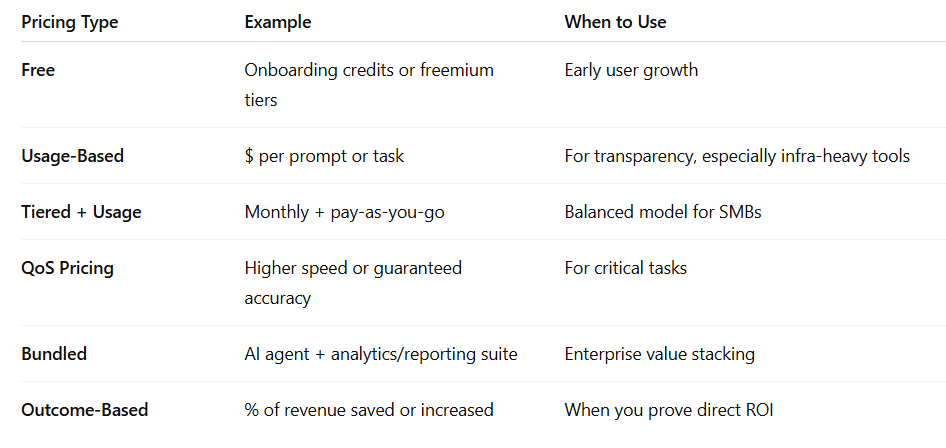we don’t want to provide food to an overweight employee, interviewing while visibly pregnant, and more
It’s five answers to five questions. Here we go… 1. We don’t want to provide food to an overweight employee We are a small company, and we have on staff a morbidly obese person (500+pound range). We know that his lifestyle decisions are what has brought him to that point. As owners of the company, […] The post we don’t want to provide food to an overweight employee, interviewing while visibly pregnant, and more appeared first on Ask a Manager.

It’s five answers to five questions. Here we go…
1. We don’t want to provide food to an overweight employee
We are a small company, and we have on staff a morbidly obese person (500+pound range). We know that his lifestyle decisions are what has brought him to that point. As owners of the company, we don’t want to encourage this destructive behavior and have asked all outside salespeople who regularly bring in lunch not too. We really consider his overeating as a form of suicide and don’t want to be a part of it. Are we overstepping the employer-employee relationship? Is there a better way to handle this?
Yes, you are overstepping. What an employee eats and how he manages his health are none of your business as his employer, and it would be wildly inappropriately for you to try to intervene.
It would be one thing if you wanted to ask outside salespeople not to bring in food because your staff as a whole wanted to pass along that request (for themselves, not for other people), or if you chose to provide only healthy snacks in your break room, or other policies that weren’t rooted in your feelings about one particular person. But just trying to keep food away from a single person (who actually does need to eat on a daily basis, regardless of your feelings about how he should be managing his diet) is an enormous overstep.
You’re not your employees’ doctor or nutritionist; they sell you their labor for money, and those are the boundaries of the relationship.
Related:
my company’s pushy new dietician won’t leave me alone
2. Interviewing in person while visibly pregnant
I had a first-round phone interview today for a job that could be a great fit. If I’m invited to a second round, it will be in person. I am currently seven months pregnant, and I look even more pregnant than that (neighbors who see me outside say “any day now, huh?”). I feel very lucky that the question of when I could start the new job didn’t come up today — thanks partly to advice you’ve given in the past, I wasn’t planning to mention my pregnancy, and that’s the one question I was anticipating where leaving that out could have made my true answer seem “dishonest” later on.
But now, thinking ahead, if I do progress to the second round, I’d really prefer not to have whoever I meet with then be so distracted by my pregnancy that they miss any of the smart things I’d (hope to) be saying! I was referred to this opening by an external recruiter, so I’m wondering, if I do hear from him that they want to move me forward, would it be a terrible idea to tell him at that point that I’m pregnant and let him decide whether and how to give the hiring manager/committee a heads-up? And if I do that, should I offer any additional details about how that affects my availability (like, I am actually willing and able to start before my due date, and I would also be open to taking a shorter leave than what I currently have planned)? I know that I don’t owe them that information now and that sharing it could complicate things for them, but it doesn’t feel like it’s in my best interests to blindside them when I walk in, or to let them worry that I’ll be more difficult to plan a transition with than I think I really would.
In case it’s relevant: due to the nature of the organization and its work, I expect everyone I might meet there to be extremely well-versed in employment law and anti-discrimination policies.
First, for the record, you don’t have to tell them. They’re not allowed to consider your pregnancy in their hiring decision or hold it against you that you didn’t raise it yourself. But in reality, that kind of discrimination does happen all the time (and it’s not always conscious or intentional).
I do think there can be value when you’re visibly very pregnant to just address it yourself since they can’t. One option is exactly what you’re considering — to mention it to the recruiter and ask for him advice about how to navigate it. The other option is to say when confirming the interview, “I don’t want to blindside you with this when we meet in person, so I want to mention now that I’m visibly pregnant. I’m due in August and my plans for leave are ___, although I have some flexibility there, depending on your needs if we moved forward, and I’m confident I could plan on XYZ.”
In this case, I’d start with the recruiter since they’re repping your candidacy to the employer and you don’t want them caught to be off-guard if the employer mentions it to them.
3. I heard a rumor that an exec is harassing multiple women, but no one wants to make an official complaint
I am a manager at a tech company. Today one of my direct reports, “Marta,” told me that she has heard secondhand from multiple women that one of our executives (from a different department) has sexually harassed them. Marta says that none of the women wants to make a formal complaint because they are afraid of retaliation. She wants to preserve their privacy and so hasn’t told me who has been affected. However, she says that they are actively looking for other jobs.
What do you recommend I do here? I want to be cautious about invading anyone’s privacy, yet I have an obligation (and strong desire) to ensure this is dealt with so that my colleagues are not subjected to harassment and they don’t feel they need to leave the company.
As a manager, you’re actually legally obligated to report sexual harassment to your company, so it’s pretty clear-cut: you’ve got to talk to HR. Explain what you were told and that none of the women want to complain for fear of retaliation. From there, your company is legally obligated to investigate as best they can. If no one is willing to come forward, they may be limited in what they can do, but that’s for them to figure out. Your legal obligation is to raise it up the chain.
You can also go back to Marta and explain that you’re obligated to share what she told you but that you will stress the fears of the people involved and the need to protect them from retaliation.
4. Should employers cover tips on business travel?
How should organizations properly address tips for work-related travel? My last employer established a policy of not reimbursing travel-related tips for ride shares/taxis and hotel housekeepers. At the same time, it covered tips in restaurants for servers (possibly not over a standard 15% to 20% in the United States). This means employees either didn’t tip their drivers and housekeeping service, or eat the cost themselves.
On ride shares and taxis, I can understand addressing this by setting an upper level on tips. Employers can verify this is a legitimate expense by reviewing the receipts and not incentivize employees to be overly generous on the company dime. I don’t know how employers can verify reimbursement claims for housekeeping and valet tips. This really bothers me for housekeeping. Housekeepers work very hard, the pay is low, and the work can be dangerous. However, this can be costly for employees who travel frequently.
Employers should reimburse tips from business travel. Tipping for taxis and housekeeping is part of the cost of business travel, and employees shouldn’t need to shoulder those costs themselves. It’s easy to come up with reasonable guidelines for expected tips and maximums so that people don’t go bananas with it.
5. Are summary-style resumes a bad idea?
Like many, I’m sure, I was looking for a way I could help with all of the awfulness that has come from this administration. I work for a government contractor as a communications manager so I ended up offering to review resumes for people affected by layoffs or who needed an exit strategy on LinkedIn. I’ve been able to review 12 resumes so far, which is great. I used many of your tips!
Something odd — the last two I received were “summary” style resumes. It put the companies they worked for in one list with the years and then a completely separate list of highlights which could have happened at any job. As far as I know, these two don’t know each other.
Have you seen this before? Is it a new trend? For both, my feedback strongly suggested a more traditional resume, highlighting accomplishments relevant to the job, as you so often advise. Is my instinct correct? This is a bad idea, right?
It’s not a new trend; it’s been around for a while. But it’s a bad idea. The problem with the format you described is that it matters if someone’s experience in X was recent or from two decades ago, and how long they did it for, and in what context they did it. Hiding that info makes it a lot harder for employers to sort through what someone’s experience actually is, and it often looks like the person is trying to conceal something (such as outdated skills or a lack of any recent accomplishments despite having a job history that should suggest otherwise). As a hiring manager, it’s annoying … and it moves the person down the list if there are candidates with equally interesting highlights but whose resumes don’t present a challenge to understand.
The post we don’t want to provide food to an overweight employee, interviewing while visibly pregnant, and more appeared first on Ask a Manager.


































































![https //g.co/recover for help [1-866-719-1006]](https://newsquo.com/uploads/images/202506/image_430x256_684949454da3e.jpg)






















![How Smart PMs Scale Their Careers in Any Org [TPG Live Recap]](https://tpgblog.com/wp-content/uploads/2025/06/2025-06-12-thumbnail-action.png?#)















































